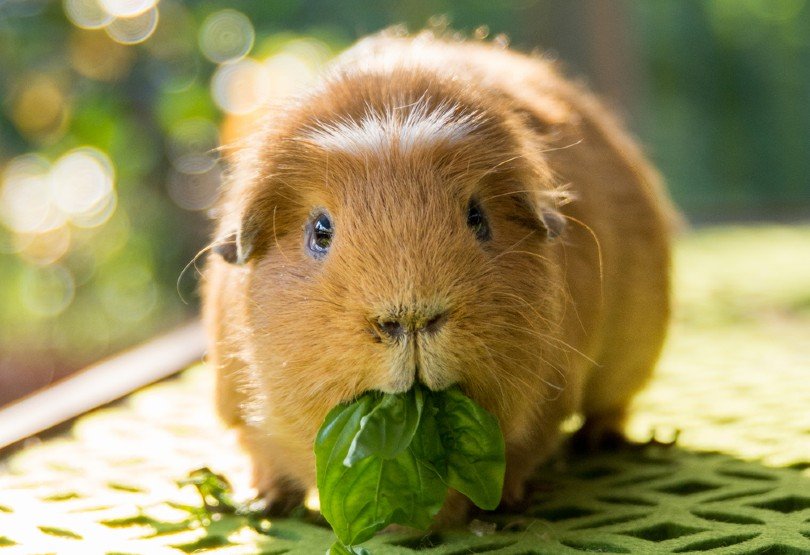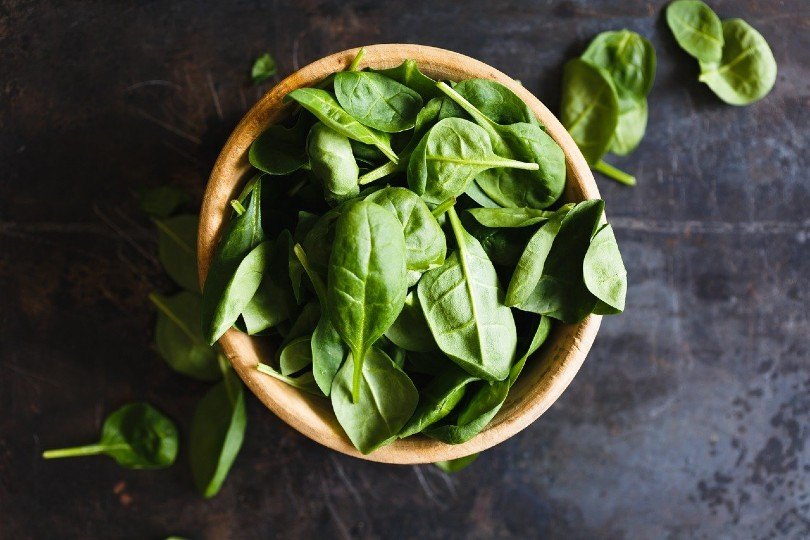
Guinea pigs are herbivores, which means that they live on a diet of plants. This primarily consists of timothy hay but includes leafy greens and other vegetables. Herbs also form an important part of your guinea pig’s diet and apart from a few notable exceptions, you can safely and beneficially feed most herbs to your little one, albeit in moderation.
Basil is one herb that is considered safe to feed to your pet, but it is worth noting that you shouldn’t feed it to them in large quantities because it does not have a desirable vitamin and nutrient ratio.
Here is everything that you need to know when it comes to feeding basil to your guinea pig.
Guinea Pig Diet
Guinea pigs need a well-balanced diet that will usually consist of hay for the roughage, commercial food for the protein and fortified vitamin C, and fruit and vegetables for other vitamins and minerals that would otherwise be lacking in their diet. You can also feed them herbs. These make tasty treats and provide an additional beneficial source of vitamin C and other essentials.

Basil
Basil contains a large amount of calcium and not much vitamin C (for an herb, anyway), which is an undesirable combination for guinea pigs. However, it contains high levels of manganese, iron, vitamin A, and vitamin K.
How Much Basil Can Guinea Pigs Eat?
Because basil is high in calcium, guinea pigs should not eat too much of it. You can feed one or two leaves of the herb a few times a week. More than this, and your guinea pig can start to show signs of too much calcium. Signs include bladder stones, which are painful. This tends to be more common in guinea pigs that are fed a diet consisting solely of pellets, but it can occur if you feed them too many foods that are too high in calcium.

What Herbs Can Guinea Pigs Not Eat?
Although guinea pigs can eat most herbs, there are some that they should not be fed. Herbs like oregano, rosemary, tarragon, and yarrow are too high in calcium to be considered safe, while sage is full of essential oils that are not considered safe. Chives are considered deadly for guinea pigs, as they are for most animals. Chives are related to onions and garlic, and they all contain sulfides, which damage red blood cells.
Final Thoughts
Basil is an herb, and like most other herbs, it is considered a safe and beneficial addition to your guinea pig’s diet, although there are exceptions to this general rule. While basil is quite high in calcium and does not have as much vitamin C as other herbs, it does contain antioxidants and a host of other beneficial vitamins and minerals, and it is safe to feed your guinea pig approximately two leaves three or four times a week.









